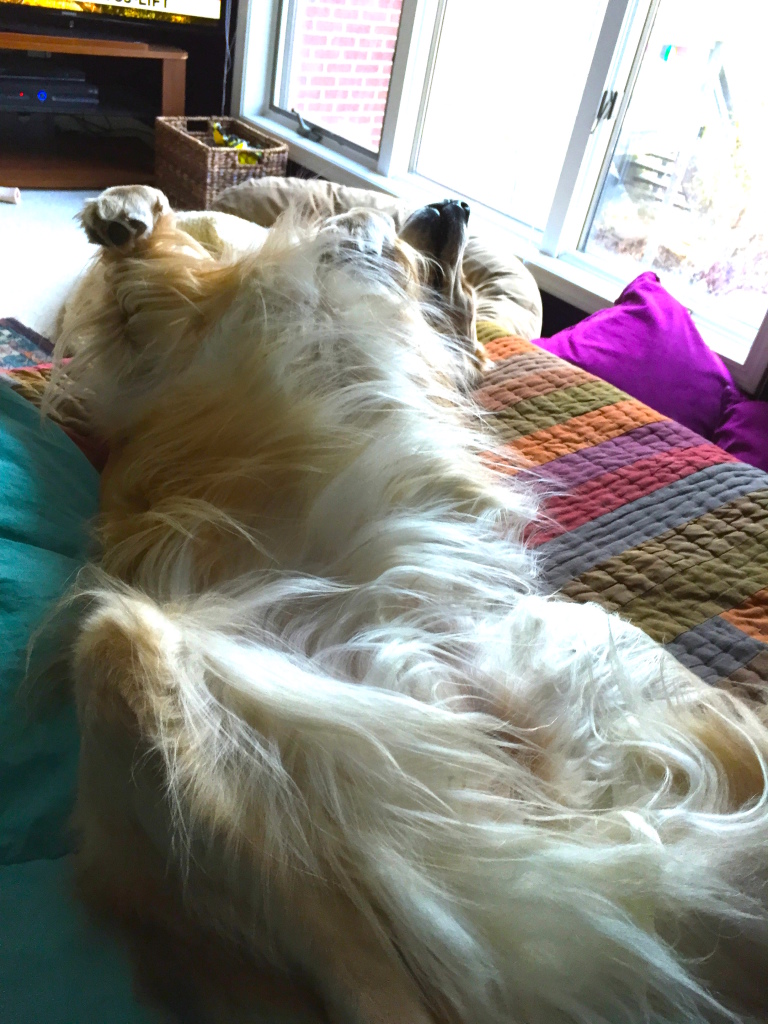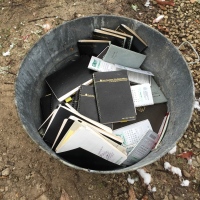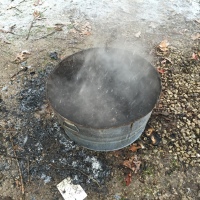As I reached the intersection of Madison and High Streets yesterday, I saw — and heard — them. Maybe two dozen young men and women, all college age. And all black. They were striding purposefully down the street, led by a young man with a bullhorn, leading the group in now familiar chants (“Hands up! Don’t shoot!” “No justice, no peace!”).
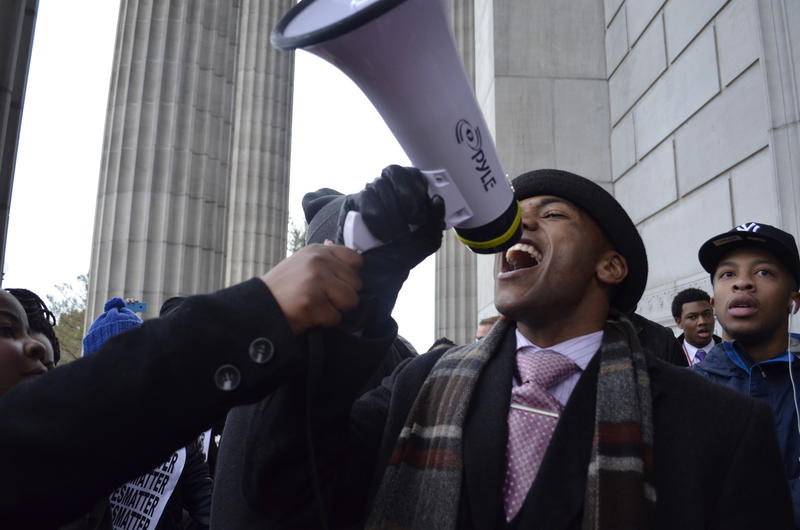
They were students at Lincoln University and obviously headed to a rally at the state capitol a block a way. As they passed I asked one young man if it would be okay for me to walk along with them and he handed me a small cardboard sign, printed with the hashtag #BLACKLIVESMATTER.

As we moved on to the capitol grounds we could see other groups on the steps and a few organizers in orange vests directed us toward the doors leading into the capitol rotunda. Folding chairs were set up on the floor and lots of folks stood on the staircase leading up to the second floor. Others looked down from the floors above. A few white faces. Not many. Mostly young, a few older.
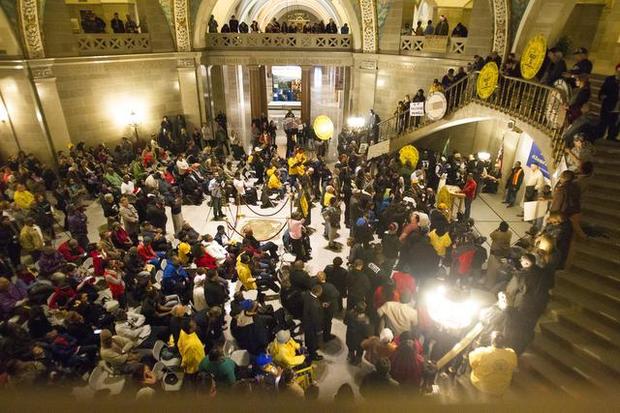
I saw police officers directing traffic. Missouri Highway Patrol officers at some of the entrances to the capitol and what I assumed were members of the capitol police force in the rotunda area. But they were dressed as police officers. No riot gear. And the ones I saw seemed intent on keeping a low profile. They didn’t appear to be expecting trouble.

A young woman standing next to me had a sign showing news images of black men who had been killed by police officers. Her sign was affixed to a small, child size, wooden baseball bat. She was using it to hold her sign. An officer came up and quietly —and politely— explained to her that the bat wasn’t allowed inside the capitol because it could be used as a weapon. She nodded and the officer went away and came back a minute later with a pair of scissors the young woman used to remove her sign from the bat. The officer pointed toward one of the doors where she could retrieve the bat when she left. And she simply held her sign up with both hands for the rest of the event. A simple thing that could have been fucked up… but wasn’t.
I sensed some tension between the older people in attendance, represented by the NAACP, and a group of younger protestors who had been on the streets in Ferguson when things got ugly. Those who spoke expressed frustration, anger, sadness. I wasn’t expecting any “I have a dream” rhetoric but I found myself wondering if this movement would have a Dr. King. Or a Malcolm X, or Stokely Carmichael.
Following the event I struck up a conversation with an older (my age) gentleman and mentioned Dr. King. He looked me in the eye and quietly said, “Martin Luther King is dead.”
As I thought about that later it dawned on me that Dr. King and the civil right movement are historical events for young black people. Like slavery or the Civil War. Important, but a long time ago. And I had the clear sense the NAACP has lost most of its relevance.
I tried to listen to the speakers but the sound system and the acoustics were awful. So I read the signs people were holding. “No justice, no peace!” “This is what democracy looks like.” “Hands up, don’t shoot!” “#BLACKLIVESMATTER.”
They do.
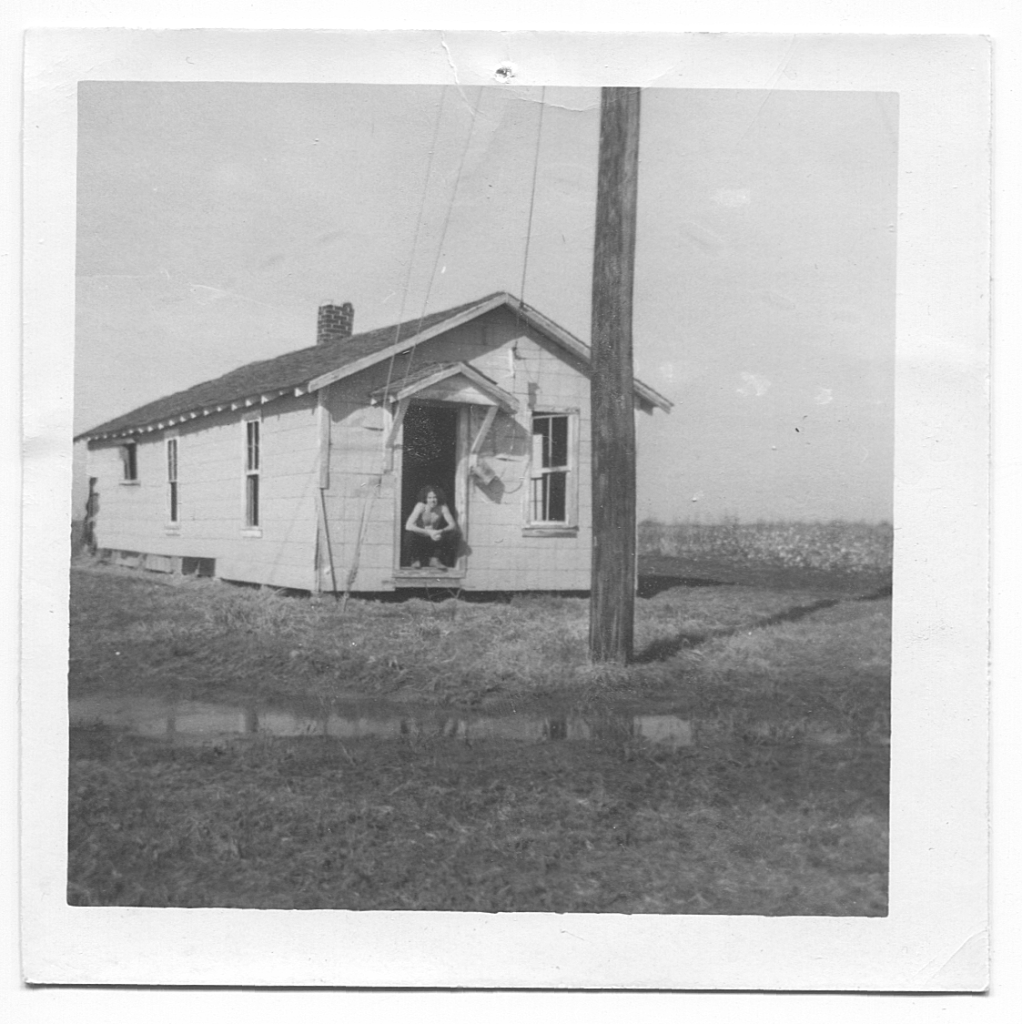





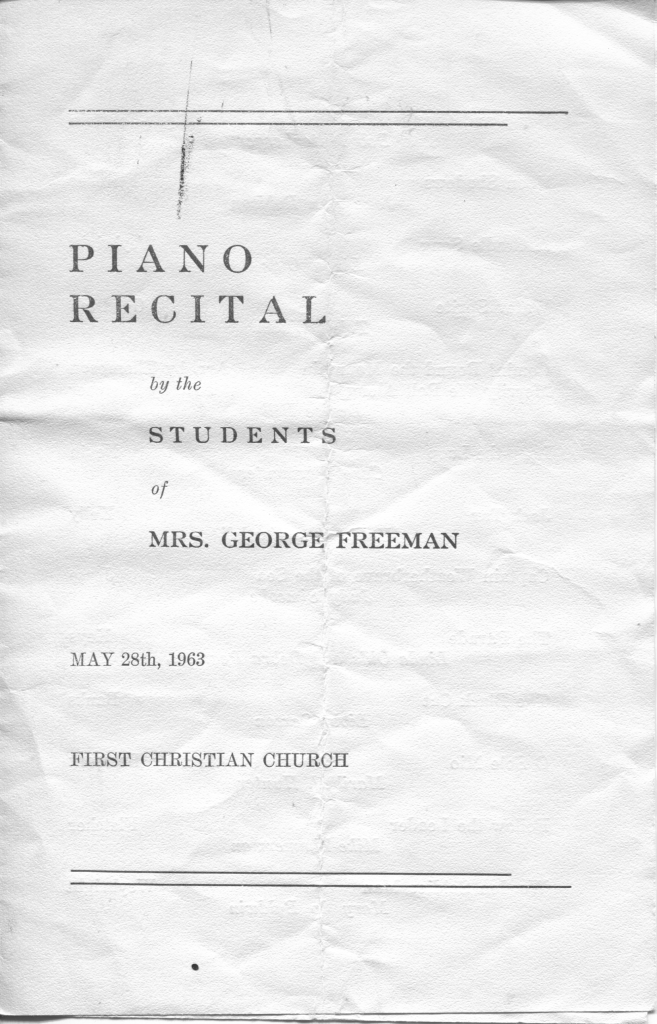
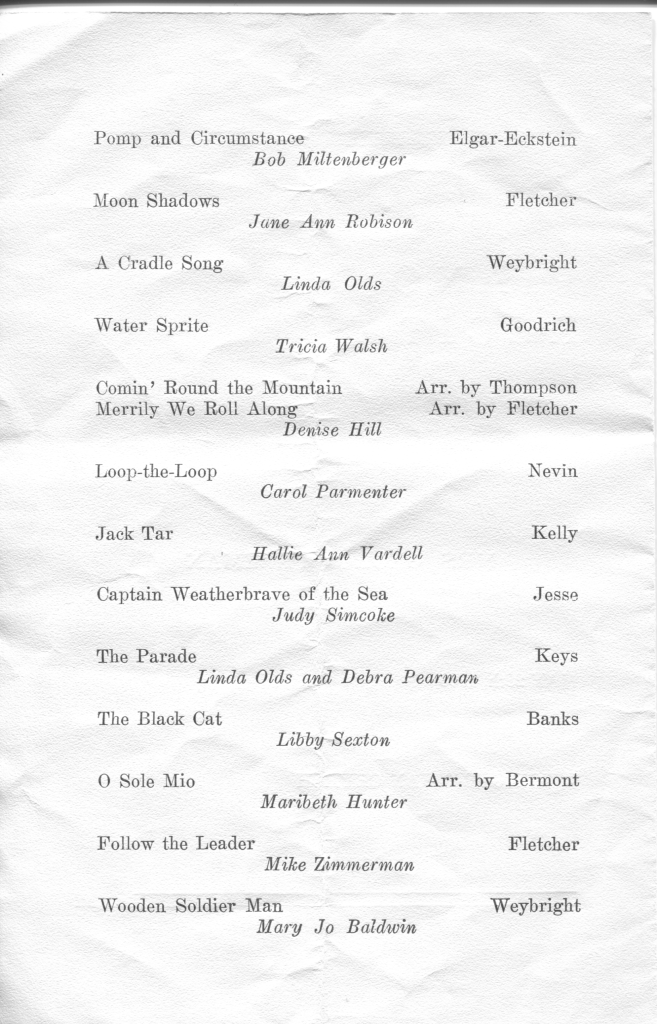
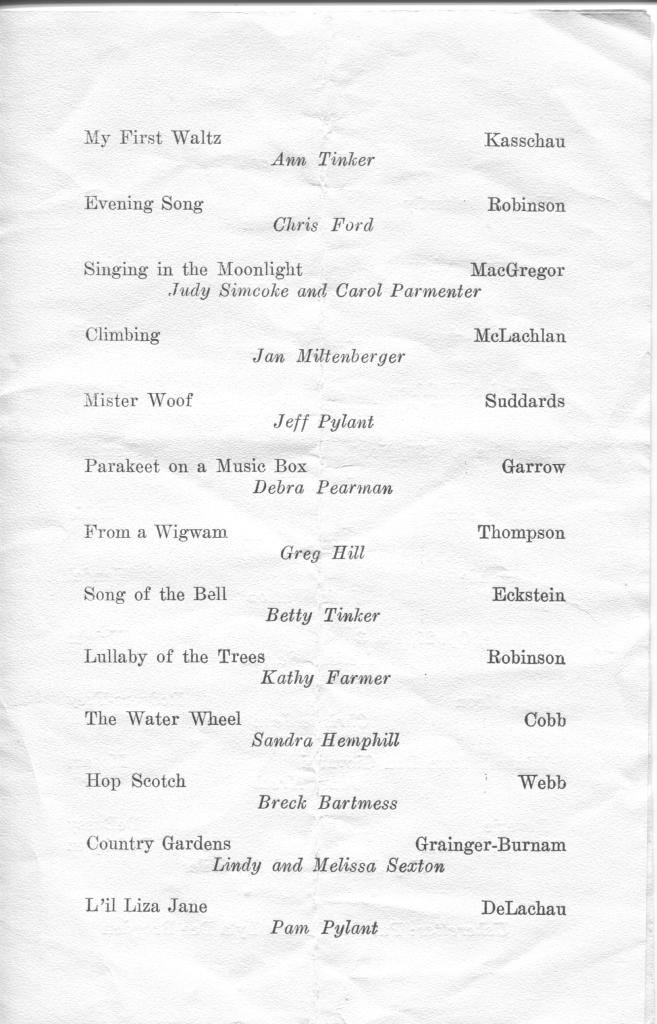
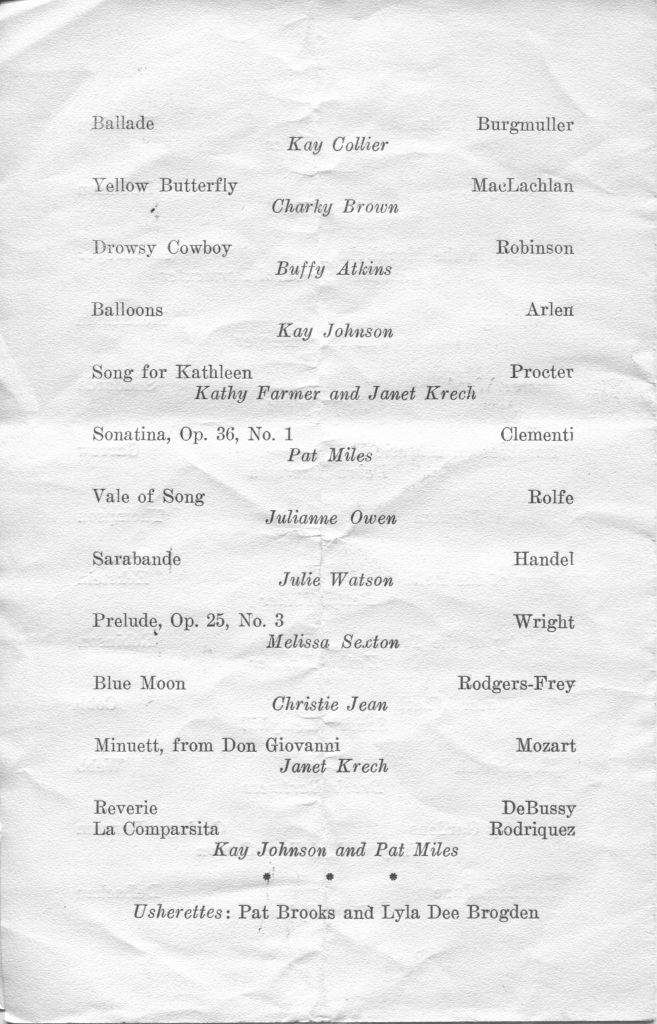
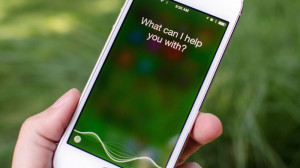 Apple’s Siri gets lot of shit but not from me. I use it more all the time (and I like “Okay, Google” as well). But Siri became even more useful when I learned I could summon him/her just by saying, “Hey, Siri” as opposed to double tapping the home button. This only works when the phone is plugged in but that makes sense if you think about it.
Apple’s Siri gets lot of shit but not from me. I use it more all the time (and I like “Okay, Google” as well). But Siri became even more useful when I learned I could summon him/her just by saying, “Hey, Siri” as opposed to double tapping the home button. This only works when the phone is plugged in but that makes sense if you think about it.